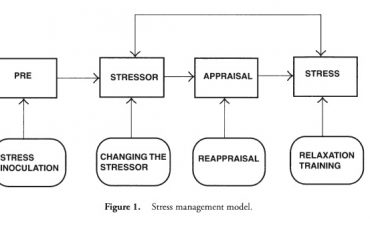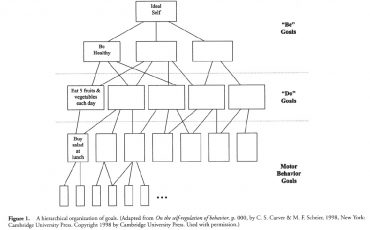Category: Health Psychology
-

Stress Management
Stress management is the use of psychological interventions to reduce physical reactions (such as muscle tension, high blood pressure, insomnia, and gastric discomfort) to demanding environmental situations. These uncomfortable reactions may be associated with negative states such as anxiety, depression, anger, pain, or illness. Reduction of discomfort may be achieved by directly counteracting the stress…
-

STD Prevention
Introduction Sexually transmitted diseases (STDs) are an underrecognized public health concern among sexually active youth and adults in the United States. Among the major STDs, HIV (human immunodeficiency virus) poses the greatest threat to public health, having caused nearly 500,000 deaths in the United States and more than 20 million deaths worldwide since the beginning…
-

Socioeconomic Status and Health
Socioeconomic status (SES), traditionally assessed by income, education, and occupation, reflects individuals’ material and social resources. Various theories of social stratification emphasize different aspects of SES and suggest different types of measurement. However, virtually all measures of SES are related to morbidity and mortality, suggesting that SES is a pervasive and robust influence on health.…
-

Social Support
Social support refers to assistance provided by friends, family, and others to an individual who is facing stressful circumstances or problems. This assistance may be aimed at helping the stressed individual solve the problem or at easing the painful emotions caused by the problem. Social support can take many forms, including reassurance, encouragement, a new…
-

Social Comparison Theory
Social Comparison Theory Social comparison, a pervasive aspect of daily life, consists in comparing oneself to others in order to evaluate or enhance some aspect of the self. The first systematic theory of social comparison was proposed by Leon Festinger, who was interested in the effects of social comparisons on self-appraisals of abilities and opinions.…
-

Smoking Prevention
There are more than one billion smokers worldwide. If current trends continue, 8.4 million smokers are estimated to die annually of smoking-related deaths by the year 2020. Tobacco use remains the single major preventable behavioral cause of death and disease in the United States. Despite the adverse health outcomes and enormous costs associated with smoking,…
-

Smoking Cessation
Cigarette smoking is the leading preventable cause of disease and death in the United States, and results in enormous medical costs. The health benefits of quitting are substantial, even if smoking-related health problems already exist (U.S. Department of Health and Human Services [USDHHS], 1990). As the dangers associated with smoking and the benefits of quitting…
-

Self-Regulation
Self-regulation refers to the processes by which individuals control or direct their thoughts, emotions, and actions to achieve their goals. According to self-regulation theory, behavior is guided by a motivational system of setting goals, developing and enacting strategies to achieve those goals, evaluating progress, and revising goals and actions accordingly. Increasingly, self-regulation models are being…
-

Self-Efficacy
Self-efficacy is the centerpiece of a theory of human agency developed by psychologist Albert Bandura of Stanford University. In his 1997 book, Self-Efficacy: The Exercise of Control, Bandura defined self-efficacy as consisting of “beliefs in one’s capabilities to organize and execute the courses of action required to produce given attainments” (p. 3). Very simply, self-efficacy…
-

Risk Factor Screening
As research findings accumulate, health professionals are becoming better and better at identifying people who are at risk of developing a variety of health problems. Moreover, knowledge is accumulating at a rapidly escalating pace, especially since the human genome has been specified. The idea that one can identify at birth whether an infant is more…